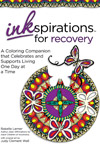Rokelle Lerner's Speaker Services
Below are the workshops and keynote address topics offered by Rokelle. Please click on a topic for more information. Visit my contact page to request more information about my speaker services.
Healing the Loss of Dreams: Strategies for Resolving Loss
Hope, to be real, includes a future story. Yet, for many addicts, their future story has been interrupted as a result of the consequences of their use. The loss of a dream is particularly difficult to articulate and clinicians often miss their impact. When clinicians miss the dreams that are attached to tangible loss, the result is disenfranchised grief, which is a powerful trigger for relapse. This lecture focuses on specific tools that allow clients to process the loss of dreams and move into a new vision for their future.
The Object of My Affection is in My Reflection
Narcissistic Wounds: The Challenge of Recovery and Strategies for Healing
Many addicts suffer from false pride, entitlement and grandiosity that unfortunately do not disappear with sobriety. This narcissism interferes with personal and professional relationships that are so filled with conflict and pain that relapse often occurs. This lecture will examine the relational consequences of narcissism and offer tools to clinicians who recognize this destructive dynamic in treatment and recovery.
The Missing Link in Addictions Treatment: Boundaries, Relationships and Spirituality
Chemical dependency has a profound effect on relationships of every kind. Disturbance in functioning, even after treatment, often exacerbates violence, propels marital breakup and encourages relapse. This workshop will address the healing of attachment patterns and boundaries in the context of personal and professional relationships. This workshop moves beyond mere awareness of the problem and focuses on specific techniques that allow individuals in recovery to develop an internal sense of value and self-control.
From Disempowerment to Healthy Relationships: A New Paradigm for Recovery
In order to move from reactivity to integrity in relationships, couples need to remain connected to their courage, truth and power without being consumed by another. This workshop will provide a different look at how couples become distracted by their partners instead of allowing the ‘best’ of themselves to come to forward in their relationships. Drawing on the work of Gottman, Schnarch, Perel and others, this lecture will move beyond description of the problem and show a new paradigm of relational recovery.
How Addicts Learn to Cope: Clinical Strategies for Traumatic Pleasure and Traumatic Repetition
Trauma is interchangeable with intensity and traumatic pleasure responses, which are more difficult to identify and neutralize. The problem in treatment is one of motivation. It’s much easier to motivate a patient to get rid of something that hurts than to get rid of something that feels god. This workshop will demonstrate techniques for both identifying and treating traumatic pleasure responses.
Mindfulness and Recovery: Quenching the Thirst for Wholeness
The key to ongoing freedom from alcoholism or any other kind of addiction is right before us, here and now, in the ordinary and perfect present moment. The problem is that addictions are often the result of our efforts to escape living in the present in the first place. This lecture will provide practical tools to observing and fostering mindfulness in recovery.
I Gave at the Office! Finding Balance Between Our Professional and Personal Life
In this day of economic turmoil and the increasing acuity of patients, it’s too easy to lose vitality, passion and professional vision. This workshop will explain strategies that can assist counselors to form and maintain healthier boundaries, revitalize their relationships and create a sense of well-being and equilibrium both at home and at work.
Reclaiming Your Power: Healing from Codependency
Codependency means that we allow ourselves to become so distracted by another, that it pulls us away from our connection with ourselves. Out of abandonment fear and desperation, codependents do anything to ensure their safety and in the process lose their dignity and their personal power. This workshop will not only guide participants through the dynamics of codependency but also provide tools that will empower individuals with tools to alleviate abandonment fear, release resentment and take back their power in their relationships.
Compassion Fatigue and Post Secondary PTSD
Compassion fatigue is often diagnosed as post secondary PTSD. When the level of acuity of patients is continually high, therapists can absorb the trauma in ways that bleed over into their personal lives. In addition, this can diminish their efficacy in their work with others. This workshop will demonstrate methods to counteract compassion fatigue and show how to maintain vision, purpose and balance in life.
Making Order Out of Chaos: Change and Transition in Recovery
The process of change takes people directly into chaos and uncertainty. This workshop focuses on tools in understanding and supporting women through the transition process of recovery. Special attention will be given to the elements of grieving and letting go, dealing with the uncertainty of change and creating a new vision for the future.
Mending the Heart, Healing the Spirit: The Process of Forgiveness
Even though events of trauma are in the past, we often relive it in our thoughts; feel the hurt, the heartache and the outrage. Forgiveness doesn’t mean that you forget what was done or not protect yourself in the future. It doesn’t mean that you can plaster over anger, anguish or pain. Forgiveness is a process that stems from our willingness to choose a life of peace rather than bitterness. This lecture will explain key strategies that lead to self- forgiveness and the forgiveness of others.
When Words Are Not Enough Expressive Therapy Modalities
People don’t change by learning more information. In order to alter beliefs and behavior, we need to integrate our knowledge with our bodies, our minds and our spirit. Participants in this workshop will practice methods of healing that involve experiential learning.
Teens, Trauma and Addiction: Getting Sober, Staying Sober
A significant percentage of adolescent girls use drugs and alcohol in order to the numb the pain of violence, trauma and abuse in their lives. Unresolved trauma in young women is the precursor to addiction, eating disorders, suicide, and violence. Those who never resolve the trauma continue to relapse and reverberate from this trauma throughout their lives. This workshop explores the healing from the perplexity of sexual, physical and emotional abuse. Counselors will come away with strategies to assist teen girls in grieving and coming to terms with the shame and anguish of trauma.
Co-existing Disorders and Family Interventions
Patients with co-existing disorders are often dependent on the support of family members for their sobriety. Unfortunately, many of these families feel so much resentment and pain that traditional methods used in family treatment are ineffective. This workshop will delve into specific, ‘hands on’ strategies that clinicians can implement in family programs or during interventions.
Counter-transference: The Blessing and the Curse!
Counter-transference is one of the bigger obstacles clinicians face in doing therapy. However, it represents one of the deeper dimensions of the therapeutic process. Counter-transference can become vital to the therapist, particularly if there’s an understanding of the kinds of personality disorders the client is presenting. This workshop will help clinicians to understand and be prepared to identify projective identifications more quickly and use them in a dynamic and therapeutic way.
Trauma Resolution: Processing the Grief, Resolving the Losses
Trauma is the precursor to addiction, eating disorders, suicide, and violence. A woman cannot be damaged without damaging her soul. Those who never resolve abuse or neglect, reverberate from trauma throughout their lives. This workshop explores the healing from perplexity of traumatic relationships, sexual, physical and emotional abuse and offers clinicians strategies to assist women in grieving and coming to terms with the shame and anguish.
Effective Treatment for Women: Successful Strategies and Implementation
The psychological pathways that lead women to drugs and alcohol addiction are different than men. This workshop will explore current research and “hands on” approaches that will assist clinicians in effective treatment of women. This workshop will cover countertransference issues, relational healing, working with co-occurring disorders and issues that arise during treatment and recovery.
Women, Relationships and Recovery
A high percentage of women abuse drugs and alcohol in order to the numb the pain of violent relationships or to feel connected to addicted lovers. All to often, relationship problems exacerbate violence, propels marital breakup and encourages relapse. This workshop will explore current research and “hands on” approaches that will assist clinicians in effective treatment of women.


